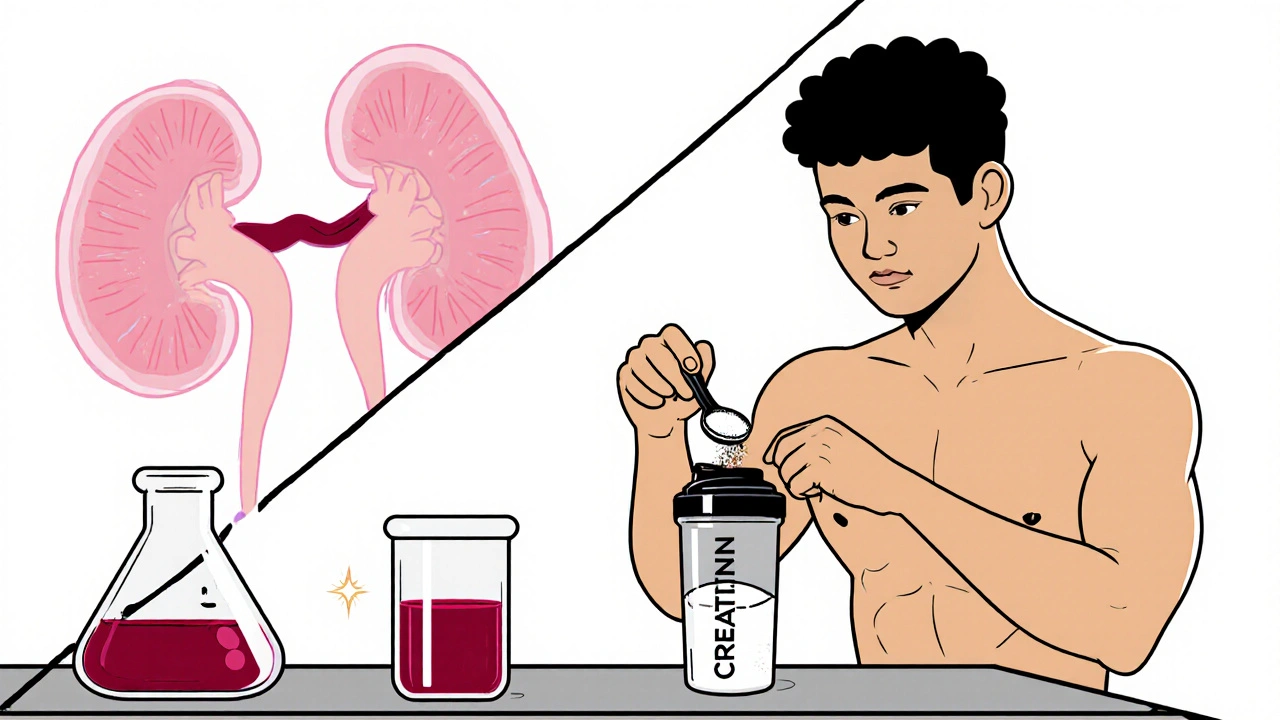
Creatine Supplement & Kidney Medications: How to Monitor Renal Function
Learn how creatine affects kidney labs, which medications matter, and the best monitoring steps to keep renal function safe while using the supplement.
When you hear creatine supplementation, a naturally occurring compound used to enhance muscle energy production during short bursts of intense activity. Also known as creatine monohydrate, it's one of the most tested supplements in sports science—with over 500 studies backing its effects. Unlike fancy new pills or powders with 20 ingredients, creatine is simple: one molecule, one clear job. It helps your muscles rebuild ATP faster, the fuel your body uses for heavy lifts, sprints, or quick bursts of effort. That’s why powerlifters, sprinters, and even older adults trying to stay strong use it.
It’s not just about lifting heavier. Research shows creatine monohydrate, the most studied and cost-effective form of creatine improves recovery between sets, reduces muscle damage after intense training, and even supports brain function under stress. Athletes who train hard notice they can squeeze out one more rep, recover faster the next day, and feel less fatigued during back-to-back workouts. And it’s not just for gym rats—studies on older adults show it helps maintain muscle mass and balance, cutting fall risk.
Some people worry about side effects. The truth? For healthy people, long-term use is safe. Your kidneys handle it fine. Water retention? Yes, but that’s mostly in muscles, not bloating. No proven link to liver damage or dehydration when used properly. The real issue? Most people don’t take enough. A standard dose is 3 to 5 grams a day. No loading phase needed. Just take it daily. You can mix it in water, coffee, or a shake—doesn’t matter. Consistency beats timing.
What about other forms? Creatine HCl, nitrate, ethyl ester—they sound cooler, but none beat monohydrate in science or price. You’re paying more for marketing, not results. Same goes for branded versions. The cheapest jar from a trusted brand works just as well.
And it’s not just for men. Women using creatine supplementation see the same strength gains, improved endurance, and better body composition. It doesn’t make you bulky—it helps you build lean muscle more efficiently, no matter your gender.
Below, you’ll find real comparisons and deep dives on how creatine stacks up against other supplements, how it affects different types of athletes, and what science says about timing, dosage, and long-term use. No fluff. Just what works, what doesn’t, and what you actually need to know before you buy another tub of powder.

Learn how creatine affects kidney labs, which medications matter, and the best monitoring steps to keep renal function safe while using the supplement.